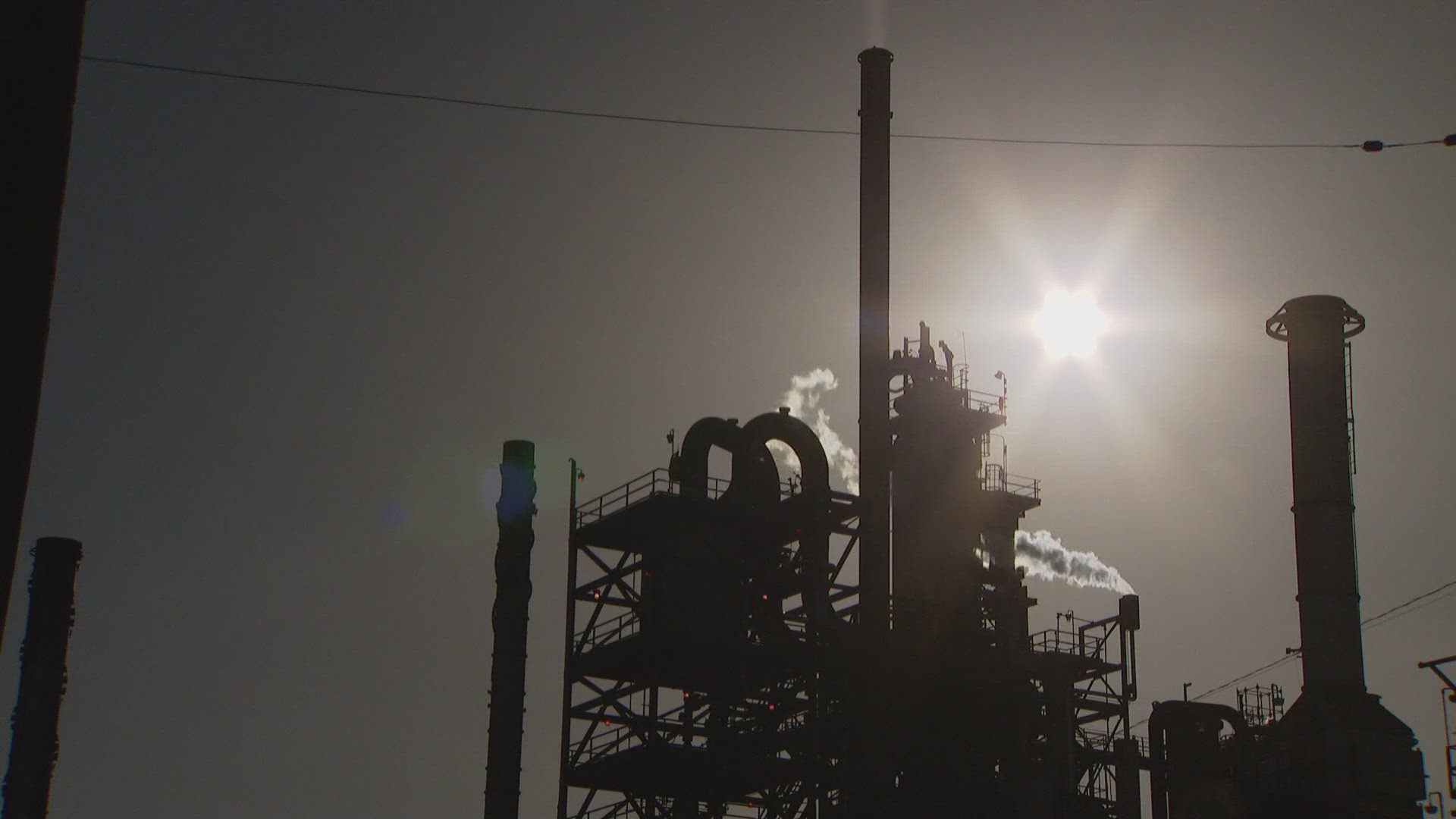COMMERCE CITY, Colo. — The Suncor refinery in Commerce City was hit with at least $10.5 million in penalties and projects for air pollution violations, marking the largest such settlement ever in the state, the Colorado Department of Public Health and Environment (CDPHE) said on Monday.
The settlement covers violations from July 2019 through June 2021, CDPHE said in a news release. It holds Suncor accountable for past violations and requires the refinery to take steps to prevent future violations.
In a separate action, CDPHE said Suncor must double the number of air pollution monitors compared to the refinery’s original fence line monitoring plan. This will ensure more data and transparency in air pollution monitoring around the facility.
Both actions build on CDPHE's ongoing work to ensure accountability and compliance with air regulations and to keep local communities informed, CDPHE said in the release.
“This historic enforcement package, which includes both a penalty and required facility improvement projects, is the largest our agency has ever reached for a single facility for air pollution," said CDPHE Executive Director Jill Hunsaker Ryan. "Today's actions demonstrate our unwavering commitment to environmental protection and the health of our residents. The agency will continue to use every tool available to prevent Suncor from having future violations.”
“The communities that live and work near Suncor have experienced unfair air pollution burdens from the refinery’s permit violations for too long,” said the CDPHE’s Director of Environmental Health and Protection Trisha Oeth. “We are committed to protecting people’s health and wellbeing – and today’s actions show we mean it. These penalties, projects, and enhanced air monitoring ensure Suncor’s neighbors can breathe easier and the refinery takes future compliance seriously.”
The total penalties in the settlement amount to $2.5 million. Of this amount, about $1.3 million will fund projects to benefit disproportionately impacted communities through the state's environmental justice grant program, and about 40% will go toward the state’s general fund, the release says. A small portion will go to the U.S. Environmental Protection Agency as required by a previous joint U.S. EPA/Colorado enforcement action.
No less than $8 million will go toward projects Suncor must complete. This work aims to minimize excess air pollution from recurring due to power-related causes.
According to CDPHE, many of Suncor’s violations were associated with power disruptions. The enforcement package addresses air pollution violations between July 2019 and June 2021. The violations included:
- Exceeding sulfur dioxide, carbon monoxide, and nitrogen oxides emissions limits.
- Exceeding hydrogen sulfide concentration limits.
- Exceeding opacity and visible emissions standards.
- Failing to meet certain operating parameters.
- Violations due to causes other than power disruptions.
Suncor is one of four Colorado facilities required to conduct fence line monitoring under the state’s 2021 Air Toxics Act. Fence line monitoring involves setting up and running air measurement equipment around the perimeter of a facility. The final fence line monitoring plan includes double the number of air monitors compared to what Suncor submitted to ensure the monitoring will meet the state law’s requirement for continuous air monitoring and data sharing in near real-time.
Colorado has also required Suncor to monitor and report on more air toxics than required by state law. State statute requires monitoring for hydrogen cyanide, hydrogen sulfide and benzene. Suncor must also monitor and report for toluene, ethylbenzene and xylenes when it implements the new fence line monitoring plan, the release says.
State statute requires Suncor to send emergency alerts based on its fence line monitoring system’s measurements.
SUGGESTED VIDEOS: Latest from 9NEWS

